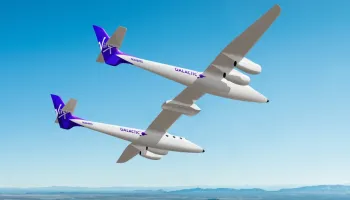Virgin Galactic has announced plans to increase the frequency of flights for its existing “mothership” aircraft, allowing the company to defer the development of a new plane while also addressing a legal dispute with Boeing.
During an earnings call on May 7, Virgin Galactic executives revealed their intention to increase the number of flights for their VMS Eve aircraft to up to 125 times a year once the company begins commercial service of the Delta-class suborbital spaceplanes in 2026. This flight rate, which assumes the operation of two Delta spaceplanes, represents a 50% increase from previous projections.
The higher flight rate aims to accommodate an estimated 750 customers annually and generate approximately $450 million in revenue per year, based on an average ticket price of $600,000. This increased flight cadence is seen as a crucial step towards profitability for the company.
Virgin Galactic’s CEO, Michael Colglazier, emphasized the significance of the third flight per week for their business model, anticipating positive operating cash flow with the launch of just two Delta ships. The CFO, Doug Ahrens, highlighted the potential economic growth resulting from the increased flight cadence, emphasizing the reinvestment of profits to expand the fleet and drive further growth.
The decision to rely on the Eve aircraft for increased flight frequency follows the development of a targeted maintenance plan and operations schedule based on the aircraft’s performance during recent flights carrying the VSS Unity spacecraft. Virgin Galactic has deferred work on a next-generation mothership to replace Eve, resequencing the program to better manage capital. The new mothership is not expected to enter service before 2028.
Despite a legal dispute with Boeing over unpaid invoices and alleged intellectual property misappropriation, Virgin Galactic remains focused on its mothership program, with Colglazier stating that the issues with Boeing will not impact their progress. Analysts raised questions about the economic model and customer backlog, but Virgin Galactic remains optimistic about its revenue projections and premium ticket sales for future flights.
As Virgin Galactic prepares for the final flight of the Unity spacecraft, scheduled for June 8, the company looks ahead to the development of the Delta-class vehicles and continued growth in the commercial space tourism market.















































